By Bradley Hughes –
In August of this year I retired from my career as Director of the Writing Center and Director of Writing Across the Curriculum at the University of Wisconsin-Madison. I had the privilege of directing the Writing Center for 35 years (from 1984-2019) and the Program in Writing Across the Curriculum for 29 years (from 1990-2019). To celebrate my retirement, my fabulous colleagues Emily Hall, Nancy Linh Karls, and Jennifer Fandel organized a celebration of writing on Wednesday, May 15, 2019, in the Alumni Lounge at the Pyle Center, a beautiful room on campus overlooking Lake Mendota.

The weather and that location were perfect—the Alumni Lounge in the Pyle Center is where we launched the very successful first International Writing Centers Association Summer Institute in 2003, and when the IWCA Summer Institute returned to UW-Madison in the summer of 2008, we began the week in the same beautiful spot. The College of Letters and Science, the Writing Fellows Program, the Writing Center, and the English Department at UW-Madison generously provided funding for the room and the refreshments. And about 200 colleagues, students, friends, and family from departments all across the university and from as far away as Washington State, Indiana, Texas, New Jersey, Iowa, Connecticut, Illinois, Kazakhstan, and China were kind enough to stop by.
Emily and Nancy asked me to use this blog post to share the remarks that I gave at the end of that celebration, after colleagues had kindly offered some tributes about my work. So in case any of this is of interest, here is a list of the speakers from the celebration followed by my remarks from that day and a special poem by a wonderful colleague. I also include below links to audio recordings of these tributes at UW-Madison and of tributes at a special celebration at CCCC in Pittsburgh in March 2019. I also share below links to a few of the posts I’ve written for this blog that explain in more detail ways I conceptualize and approach different dimensions of writing center and WAC work. And I’ve included a set of PowerPoint slides from my celebration–a photo history of my career. I am delighted to have this chance to write one more time for a blog that I thoroughly enjoyed creating with Rik Hunter and other wonderful colleagues and writing for and editing over the past ten years.
Speakers at the Celebration of Writing for Brad Hughes
- Russ Castronovo, Professor of English and Chair of the English Department
- Joseph Wiesenfarth, Professor Emeritus of English
- John Karl Scholz, Professor of Economics and Dean of the College of Letters and Science, now Provost of UW-Madison
- Susan Zaeske, Associate Dean for the Arts and Humanities, College of Letters and Science
- Greg Downey, Associate Dean for the Social Sciences, College of Letters and Science
- Kate Vieira, Associate Proessor and Susan J. Cellner Chair in Literacy, in the Department of Curriculum and Instruction
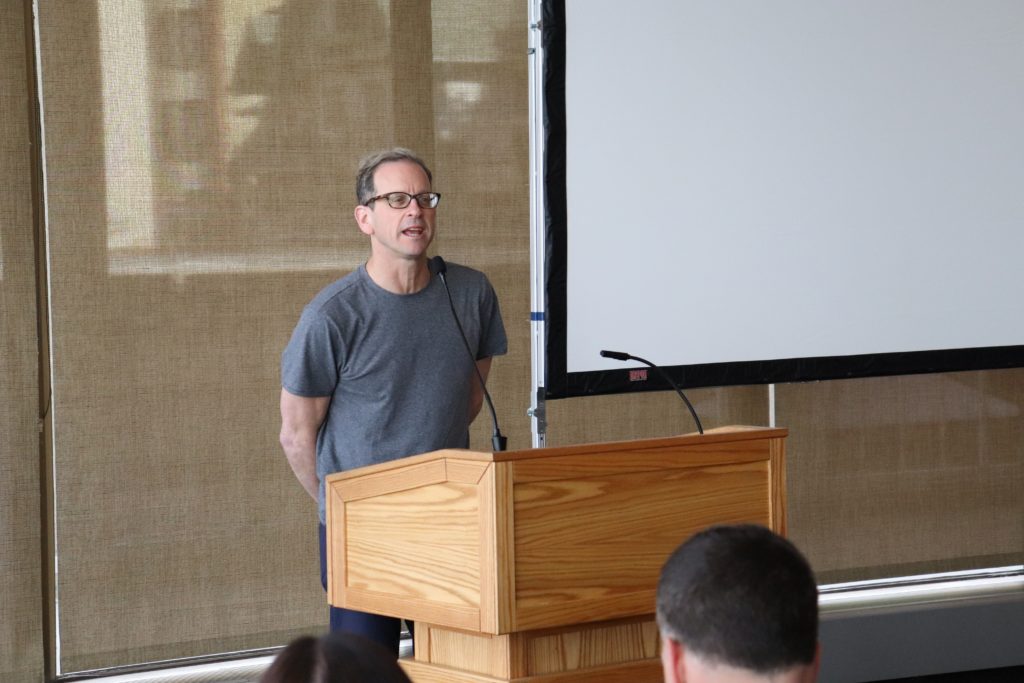
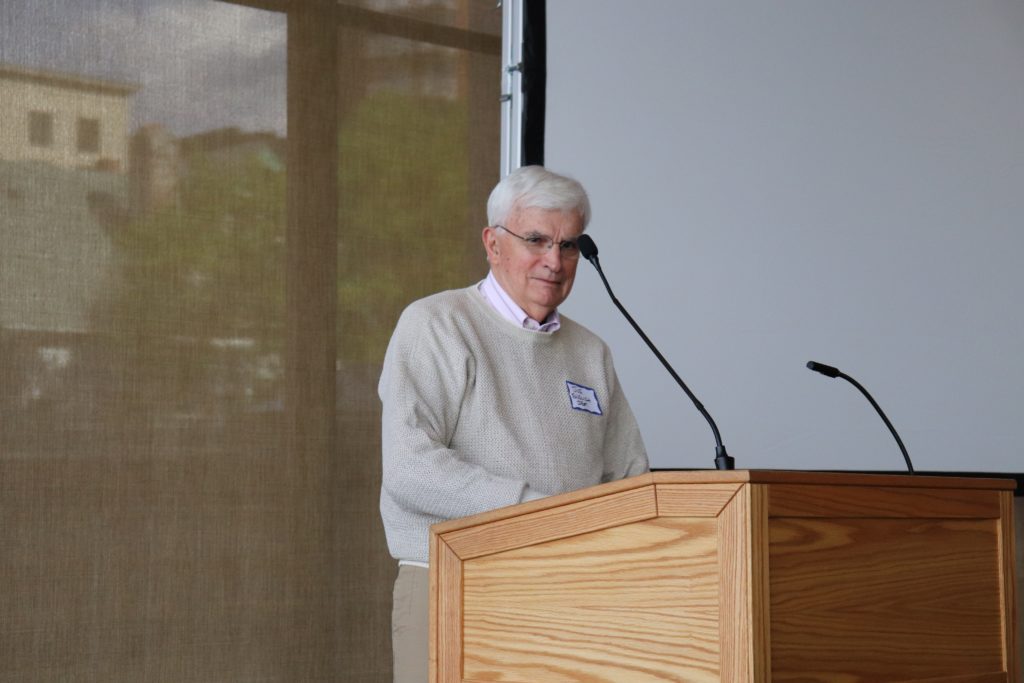

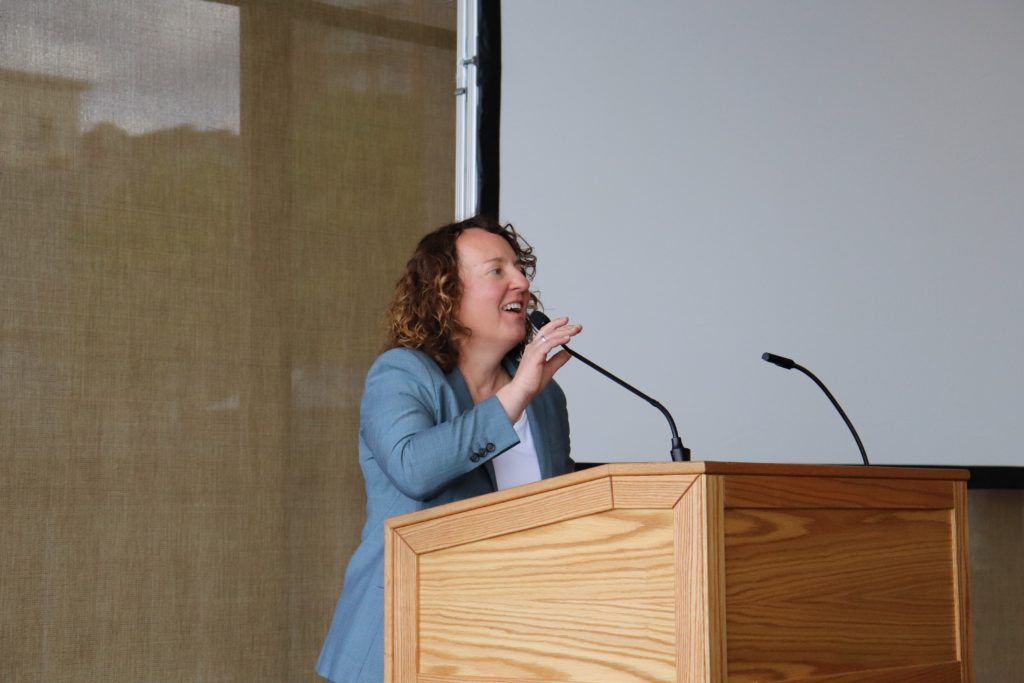

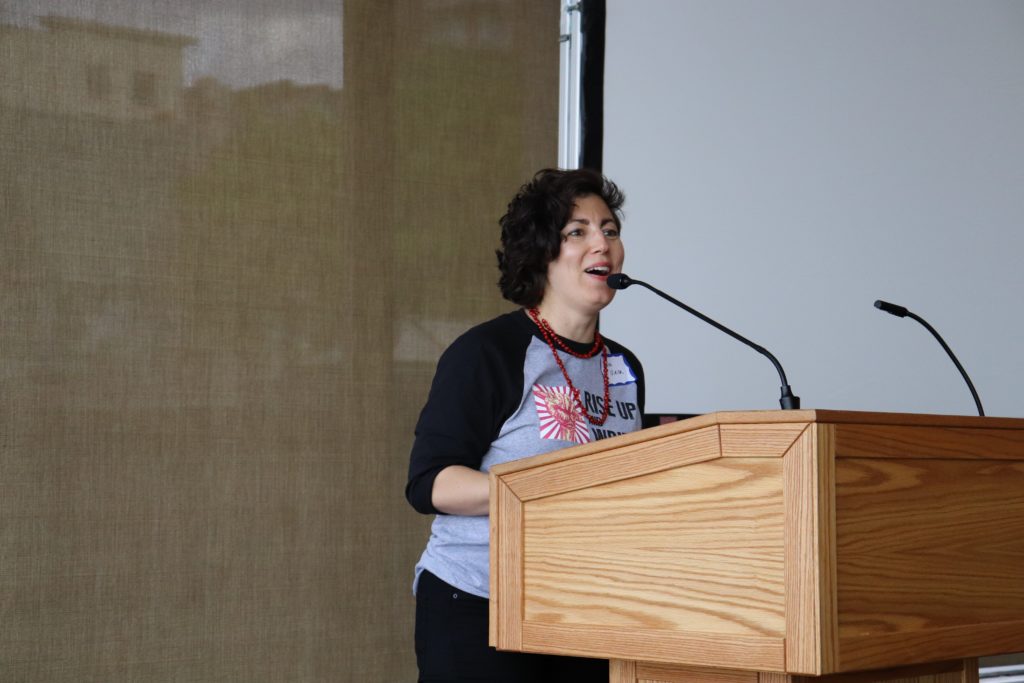
- Morris Young, Professor of English and Director of English 100
- Mia Alafaireet, TA Assistant Director of the Writing Center and PhD student in literary studies in the English Department
- Antonio Byrd, former TA Assistant Director of the Writing Center and now Assistant Professor of English at the University of Missouri-Kansas City
- Mike Haen, TA Assistant Director of Writing Across the Curriculum and PhD student in composition and rhetoric in the English Department
- Kathleen Daly Weisse, former TA Assistant Director of Writing Across the Curriculum and now Director of the Writing Center at Marist College
- Jenna Mertz, former Undergraduate Writing Fellow and now Associate Director of the Writing and Media Center at Iowa State University
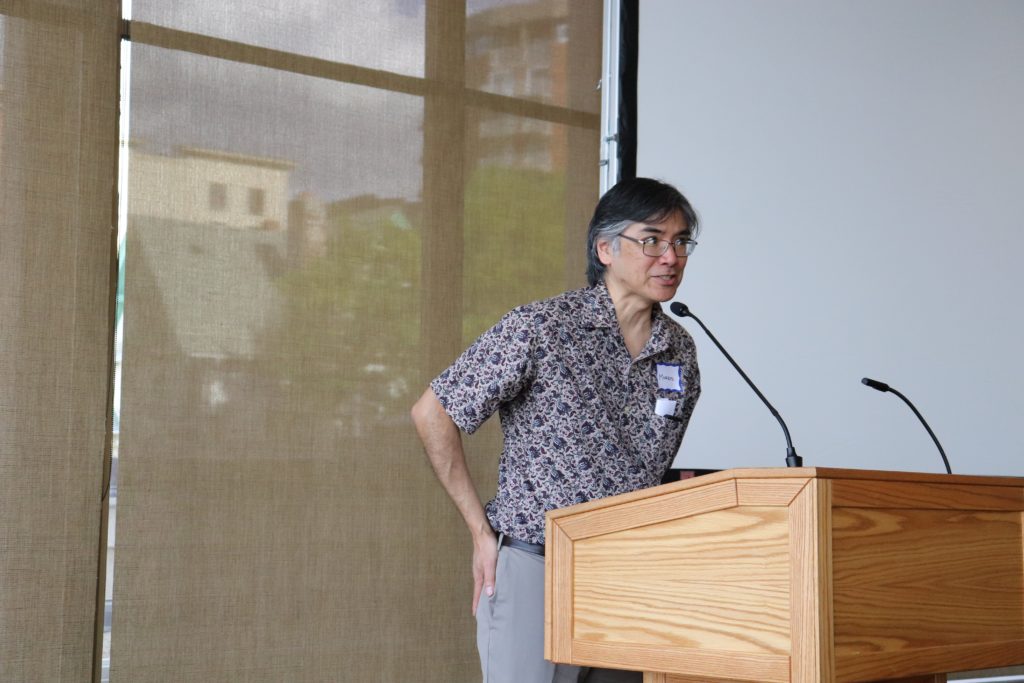

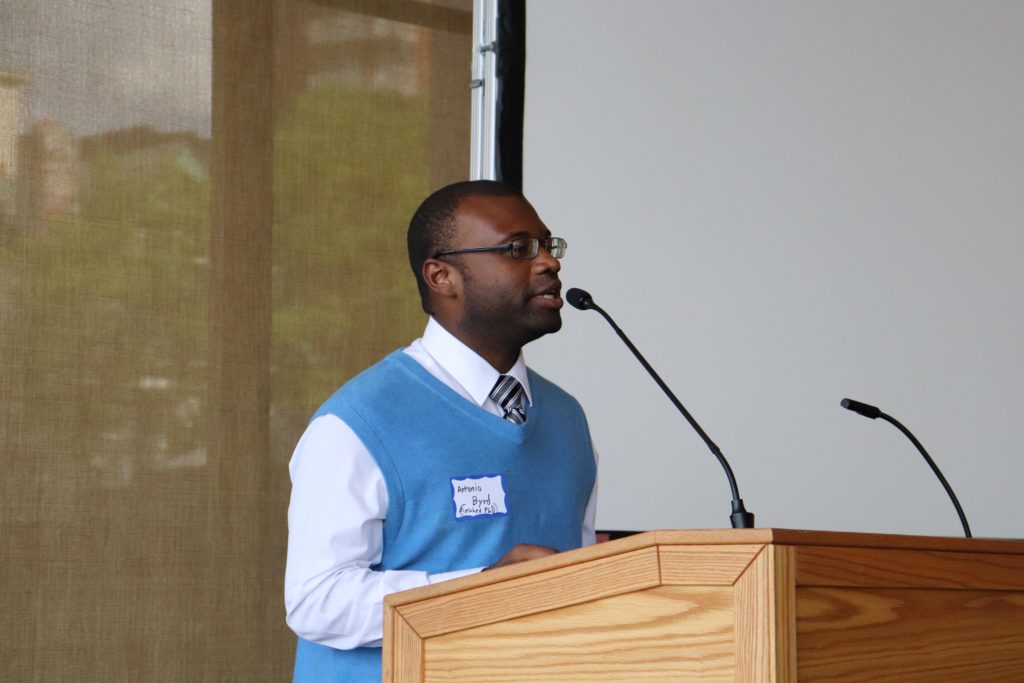
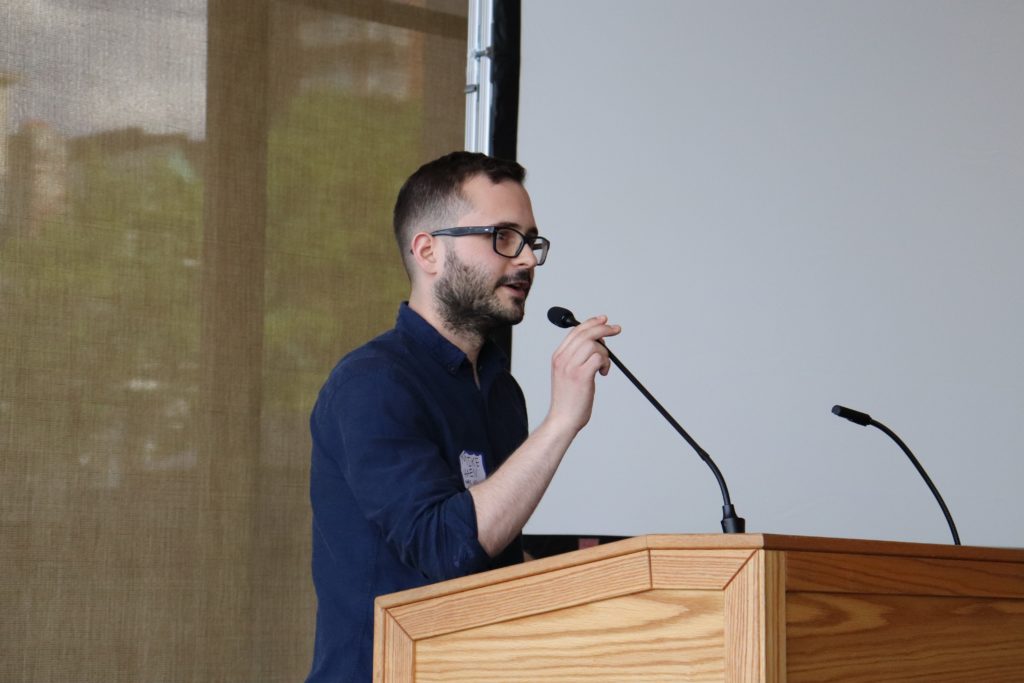

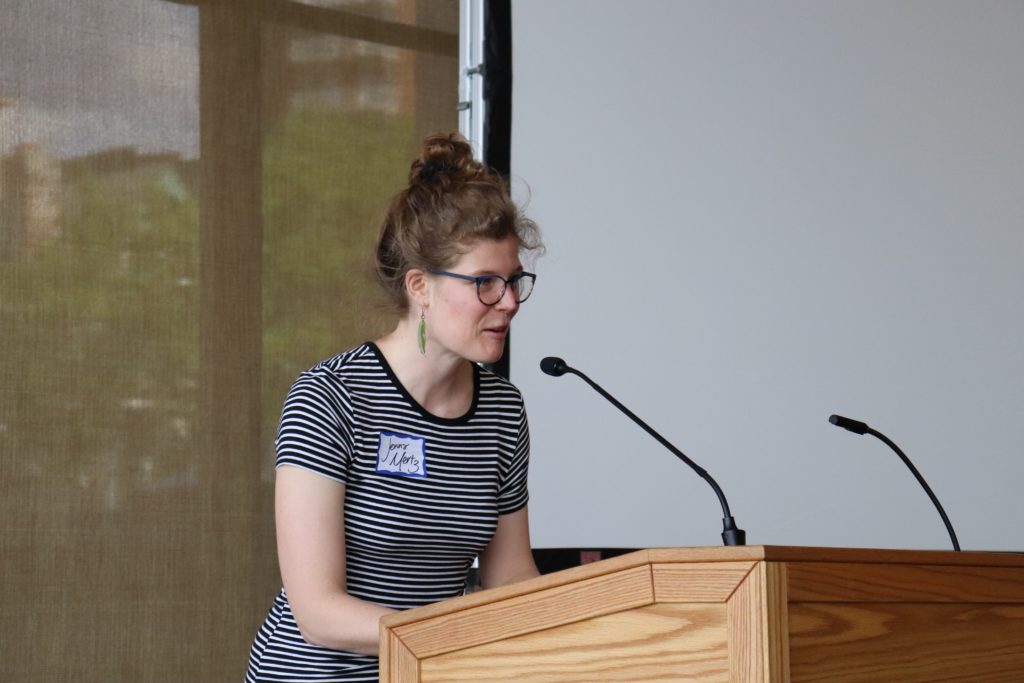
- Mary Fiorenza, Associate Director of English 100
- David Zimmerman, Professor of English and Associate Chair of the English Department
- Elaine Klein, Associate Dean of the College of Letters and Science and Director of General Education for UW-Madison
- Kim Moreland, Director of the Writing Center at the University of North Texas
- Chris Castro, Program Director of Madison Teaching and Learning Excellence
- Janet Batzli, Director of the Biocore Program
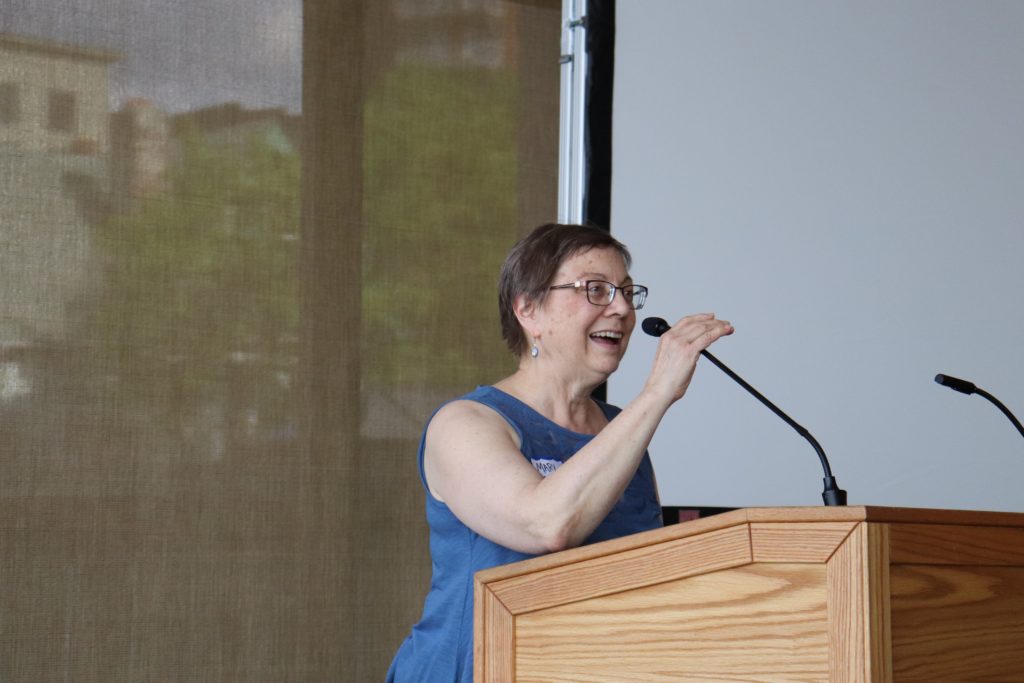
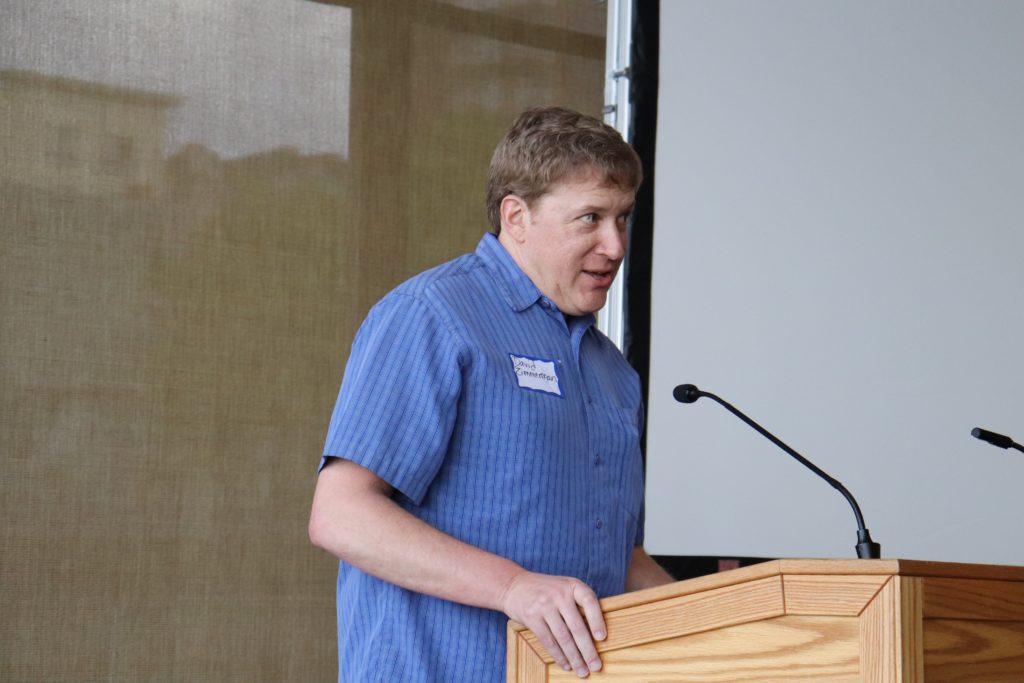




- Yoshiko Herrera, Professor of Political Science and Former Faculty Director of UW-Madison’s Partnership with Nazarbayev University in Kazakhstan
- Jo Handelsman, Professor of Plant Pathology and Director of Wisconsin Institute for Discovery
- Jennifer Fandel, Administrator of the Writing Center
- William Cronon, Professor of History, Geography, and Environmental Studies
- Rebecca Nowacek, Associate Professor of English and Director of the Ott Memorial Writing Center at Marquette University
- Nancy Linh Karls, Science-Writing Specialist at the Writing Center and Director of Madison Writing Assistance
- Emily Hall, Director of the Writing Fellows Program
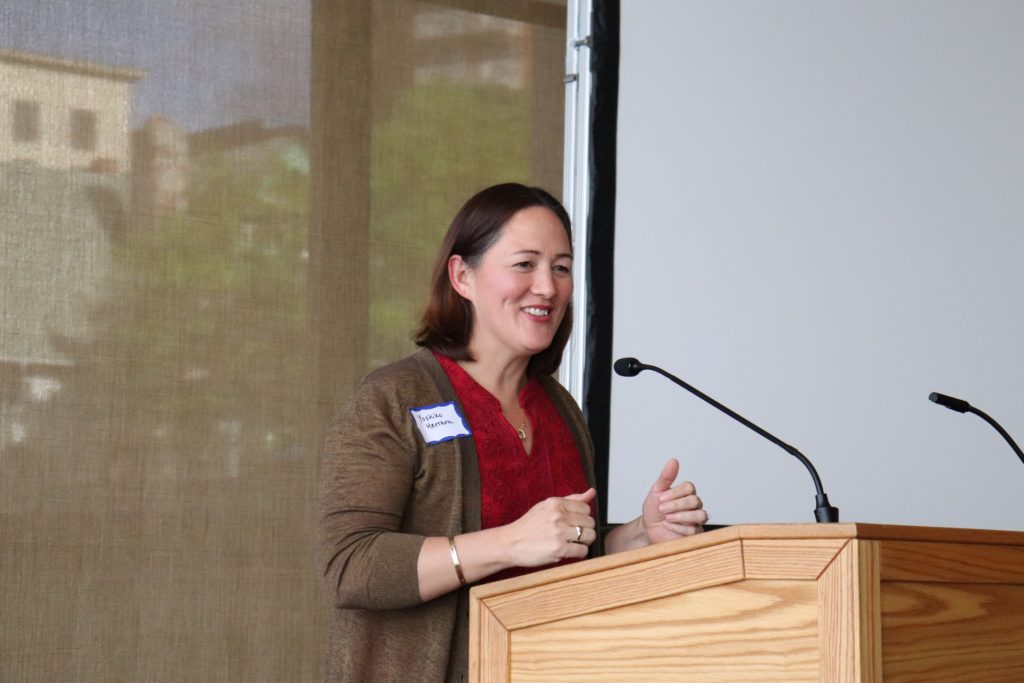

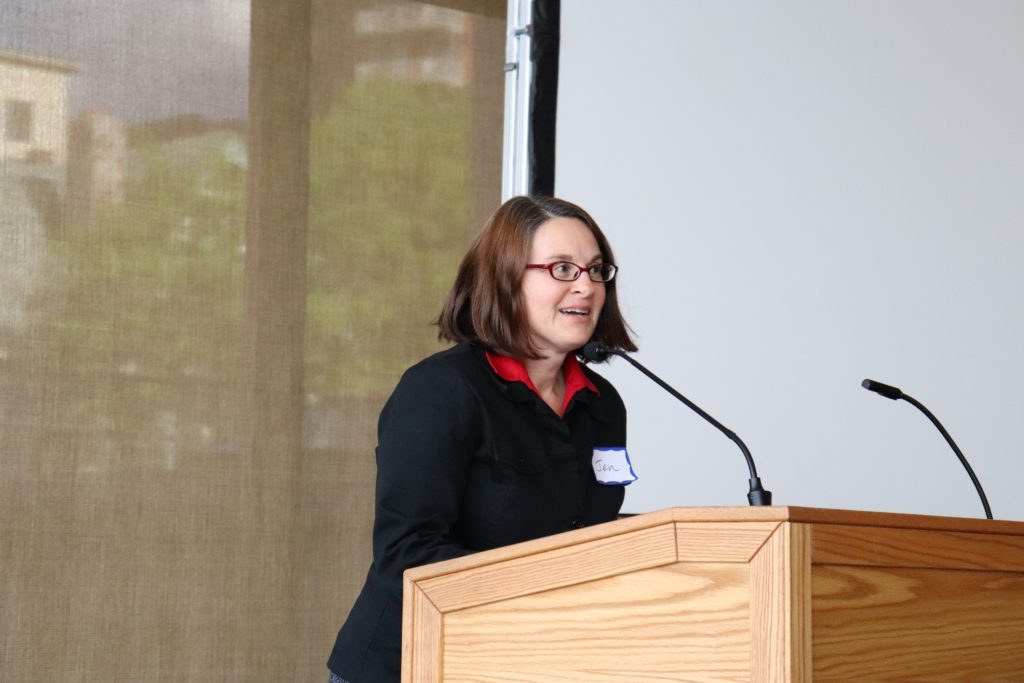
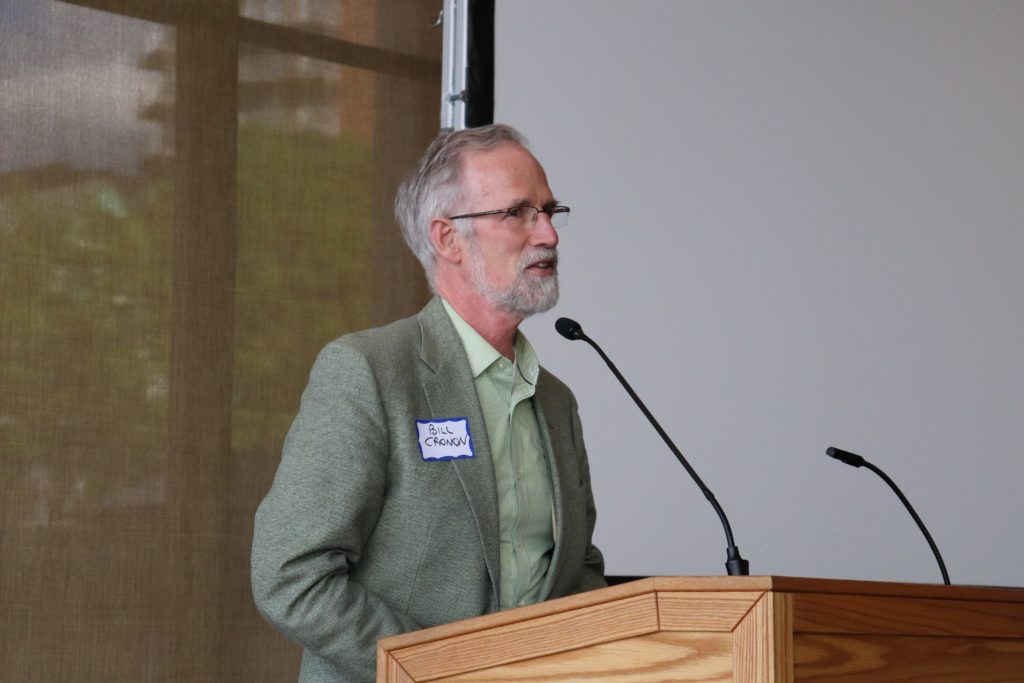
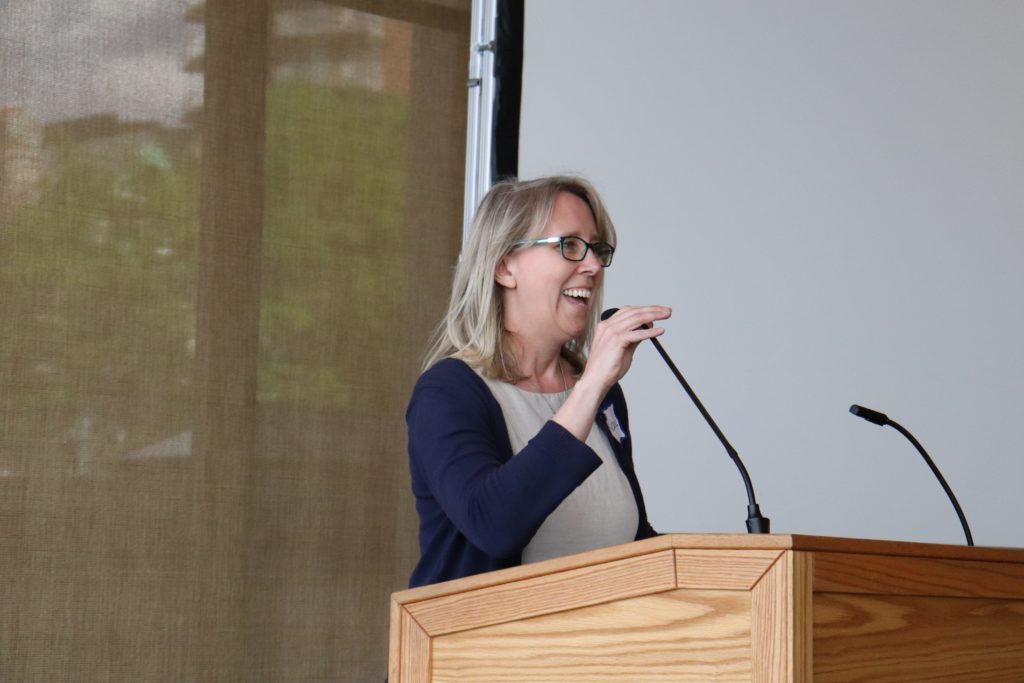
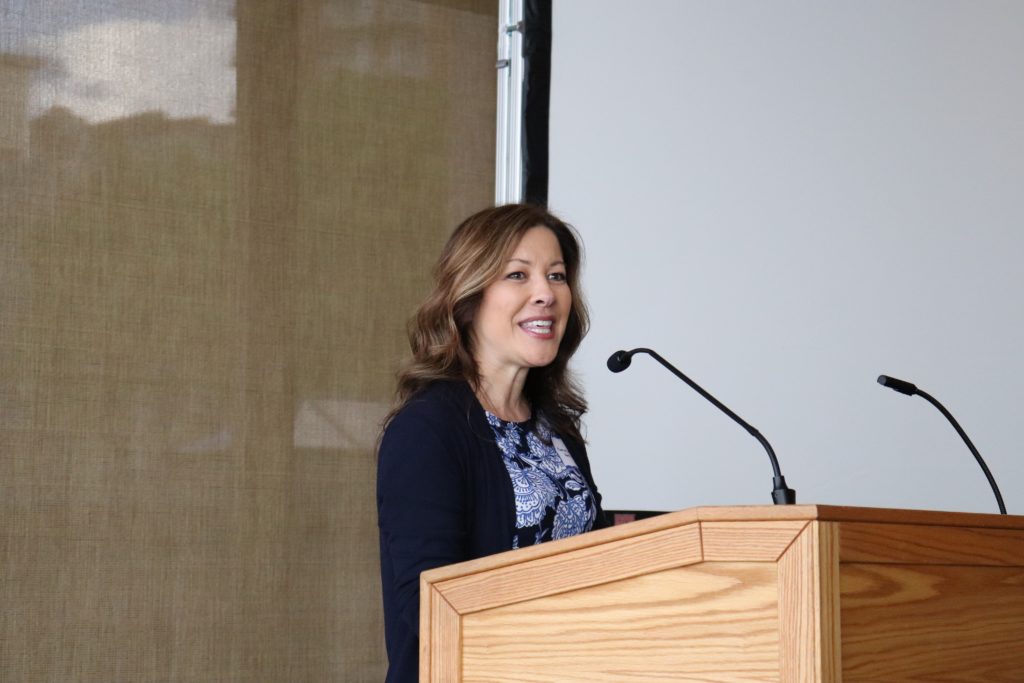

Brad’s Remarks after the Tributes
Wow, 25 speakers! Funny–because of the topic of their talks, I didn’t find that long at all or excessive. As I was listening and counting, I wondered–is it just a coincidence that the # of speakers this afternoon is the same as the current number of candidates for the Democratic nomination for president?
To all of you who just spoke, thank you very, very much those overly kind words. I am deeply honored to have such a distinguished group speak this afternoon–I really mean it. But when you have a chance, I’d urge you to schedule an appointment with me at the Writing Center so we can work on reducing the amount of hyperbole in what you write. For those of you who just listened to all of those encomia, a huge thank you for being here this afternoon. It means the world to me that you are all here.
I promise that I will be brief–just 5 minutes. I guess that means I can’t share with you my half-hour treatise on why writing centers and WAC are the most important parts of a university. And I won’t give my new talk about connections between teaching writing and quantum mechanics–I honestly have theories about that.
Just in case you were wondering, I did NOT grow up wanting to be a writing center or WAC program director. I wanted to be an airline pilot or air traffic controller or professional saxophone player. There are similarities, trust me. I guess that 35 years is a long time, but it honestly doesn’t feel that long, because, at the risk of sounding naive, I love the work that I do. The work that I do moves from incredibly detailed conversations with student-writers to big-picture long games of developing sustainable academic programs and partnerships. I would love to tell you about some of my writing center students–a doctoral student in industrial engineering, who was writing his dissertation about designing computer programs and mathematical models for controlling robots in Amazon’s warehouses. Or last December a senior majoring in statistics who was writing application essays for masters programs in business analytics; she just wrote me to tell me that in the fall she’s going to William and Mary with a scholarship. Or about the student from Egypt in my style workshop–he was studying–get this field–social pharmacy. I have the same detailed conversations about teaching writing with undergraduate writing fellows, with TAs, and with faculty.
And my work takes me all across the university; and all across the US; and around the world. It’s not an accident that you all come from such a variety of departments across UW-Madison and beyond–colleagues here from chemistry and nursing and the Chancellor’s Scholars program and undergraduate academic awards and the libraries and chemical engineering and German and history and psychology and FIGs and the graduate school and DesignLab and DoIT and LSS and plant pathology and student academic affairs and the LaFollette Institute of Public Affairs. And from teaching and learning programs across campus. And from MATC and UW-Milwaukee. And from Texas and Washington State and even from Kazakhstan.
Why am I across campus all the time? Not just because I’ve heard there are more beautiful buildings than Helen C. White Hall. It’s because we all need to recognize that a university runs on writing. A research university is a writing university. Think about that for a minute. A research university is a writing university. And writing belongs to every discipline. It’s a key to learning and understanding and owning existing knowledge. There are good reasons why writing-intensive courses are a high-impact practice. Writing is a key to discovering new knowledge. To analyzing data and texts and history and policies, to articulating and supporting new theories. Writing is key to funding research. To disseminating new knowledge. Writing lets us see what we know–and what we don’t. It’s how we critique existing structures and effect change in this world. Writing demands precise thinking, logic, elaboration, development, support for claims. It’s how we persuade others that we are right. As teachers, the writing our students do gives us windows into what they understand–and what they don’t. Beyond the university, the worlds of business and government and industry and non-profits run on writing too.
We also need to recognize that complex writing is extraordinarily difficult to do well. And it’s up to all of us–ALL of us–to help students to claim the power of writing for themselves. Mentoring students to become better thinkers and writers takes slow, patient, painstaking, often invisible work–but it’s essential work. We all have to support a curriculum and a university that value writing in all disciplines. A great university needs a strong writing program and a strong writing center, a center of consciousness for writing. And because this is a shared enterprise with all disciplines, it needs a strong WAC program–faculty in all disciplines need support to learn to do this critical teaching well and future faculty–our graduate students–need this mentored teaching opportunities.
Let me close with just a few thanks, which inevitably are inadequate and will miss too many people. First, I want to thank the Pyle Center staff for their work setting up and catering and staffing this beautiful reception. I want to thank my parents who were never teachers in their careers but who always encouraged my curiosity and taught me that leadership is a form of teaching. And I should thank the teachers and professors who took an interest in me, and whose values and words echo in mine. I feel profoundly lucky to have had my career in THIS writing center and WAC program, in THIS English department, in THIS College of Letters and Science, at THIS university. I have been fortunate enough to travel to all kinds of other universities but always am deeply grateful to return to this one. And at UW, I want to thank Joe Wiesenfarth and Stan Henning and Bill Lenehan and Sherry Reames and Judy Craig–for being such crucial mentors throughout my career. And all of the deans and associate deans in L&S and the graduate school I have been so lucky to work with. And English department chairs and associate chairs. And colleagues in the UW-NU partnership. And many, many colleagues–I am delighted that I do NOT do my work alone. I value enormously the intellectual relationships and support I have had from amazing composition and rhetoric faculty in the English Department, including colleagues who did such powerful work here before they retired, Marty Nystrand, Deb Brandt, and Ceci Ford. And fabulous current colleagues Mike, Mary, Morris, Christa, Kate, and Caroline. And faculty and staff all across this vast university. And wonderful university staff–Kathy, Spring, Julie, Brenda, Robyn. And IT visionaries, Greg Putnam, Les Howles, and Blaire Bundy. I am deeply, deeply grateful. Then finally the amazing TAs and undergraduate writing fellows I’ve had the joy to work with in the writing center and WAC for so many years. And the closest colleagues, who, no surprise, have organized this event–Nancy and Emily and Jen. And the Writing Center’s former administrator and good friend, Terry Maggio. And I want to thank my brother Greg who came all the way from New Jersey to surprise me today and who has inspired me my entire life. Finally I want to thank my spouse, Elise Gold, and my daughters Lindsey and Jenna, who know better than anyone else how much time my work takes; they support and inspire me in the most amazing ways every day.
I hope that you all love your work as much as I love mine. Thank you very much for witnessing my work and my passions today.
In case you would like to hear an audio recording of the tributes from Brad’s retirement celebration at UW-Madison, here is a link. (Warning: it’s long!)
And in case you would like to hear an audio recording of the tributes from Brad’s retirement celebration at CCCC in Pittsburgh in March 2019, a celebration so kindly organized by my wonderful friend and co-author Rebecca Nowacek, here is a link. (Warning–this one is long too, and there’s plenty of background noise from the bar where we held the celebration!)
And in case you would like to see a photo history of Brad’s career at Wisconsin (and including a few childhood photos:-)), here is a link. (Warning: there are LOTS of photos there!)
In case you’d like to read more about my approaches to writing center and WAC work and more history of our programs, you might be interested in some of the posts I’ve written for our blog in the past:
- A New WAC Faculty Sourcebook for a New Academic Year
- Behind the Scenes at the UW-Madison Writing Center’s Online Writer’s Handbook
- The Tutoring Corona: New Perspectives on Professional Development for Tutors
- Writing Center Moonshots
- “Something Magical in Meeting with a Group of Like-Minded People”: Graduate Writing Groups in the Writing Center
- The Evolution of UW-Madison’s Writing Center Online: A Wayback Look
- Writing Centers Have Flex Appeal
- Starting a Slow-Writing Movement
- Our Writing Center’s Founder: Professor Joyce Steward
Some Photos from the Celebration
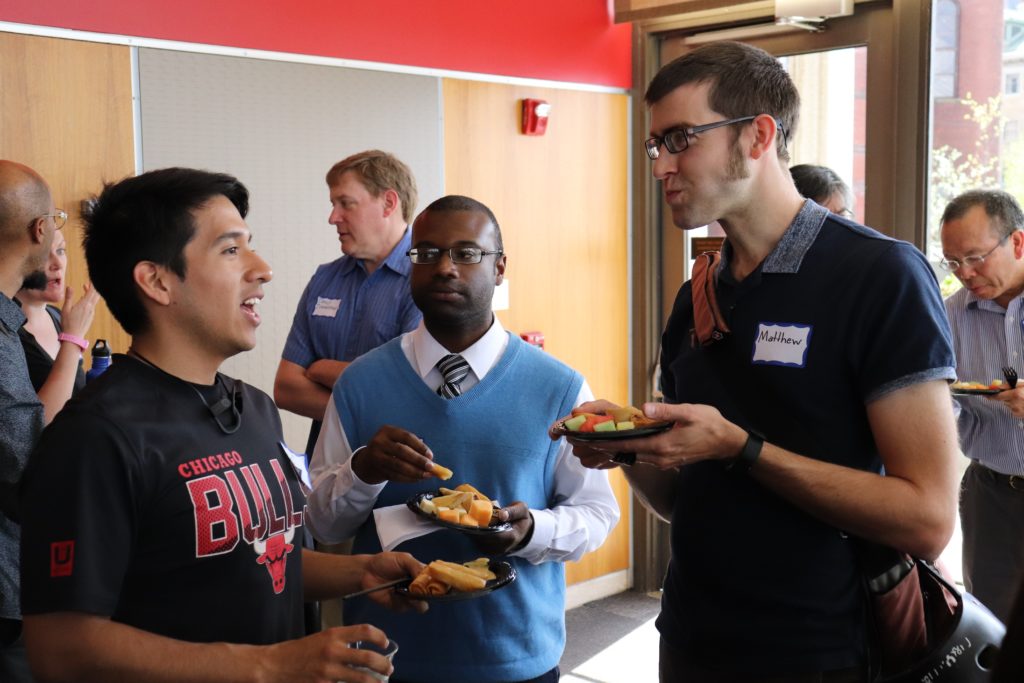
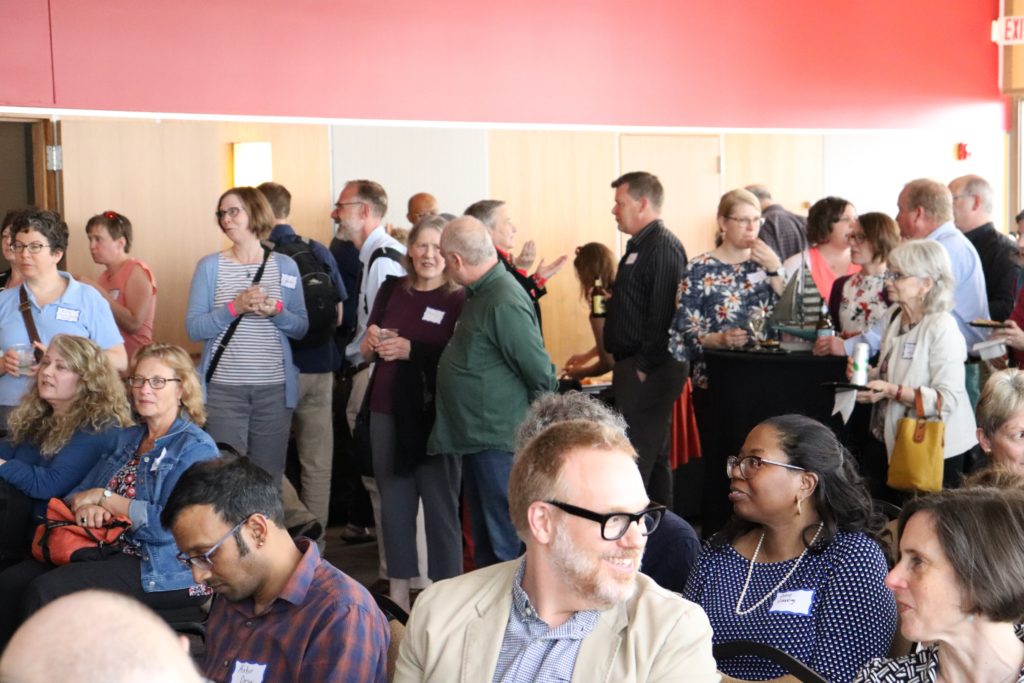
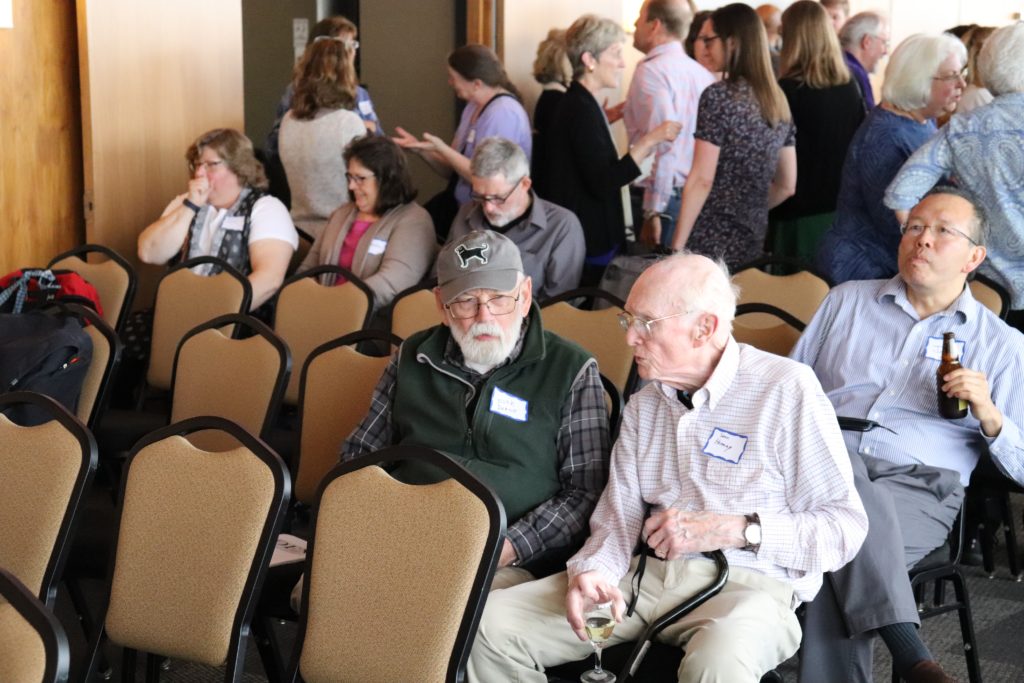
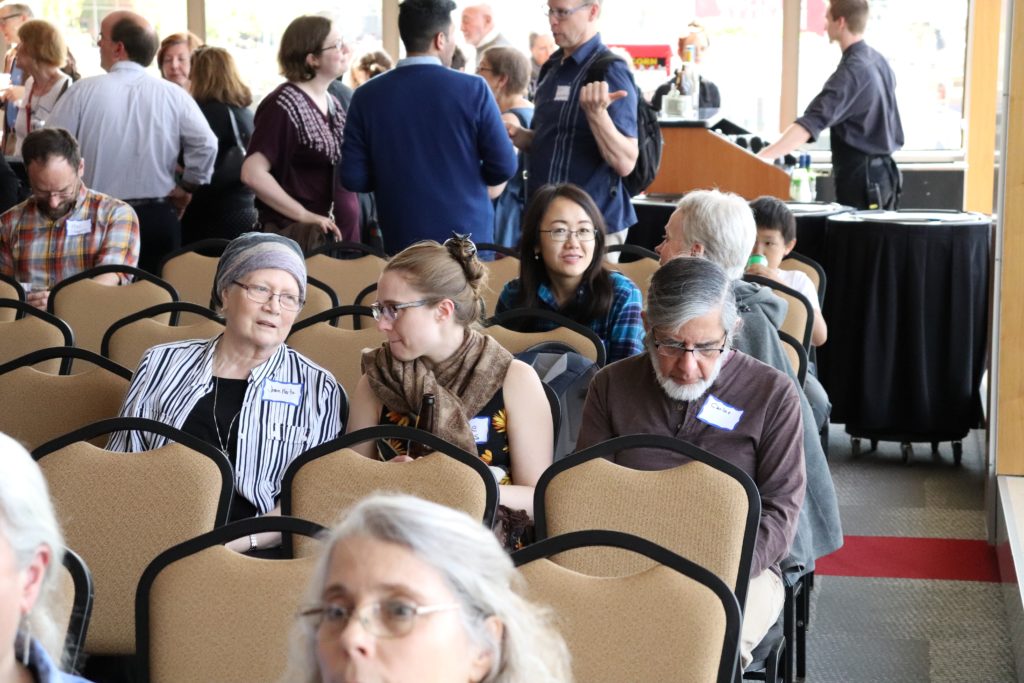
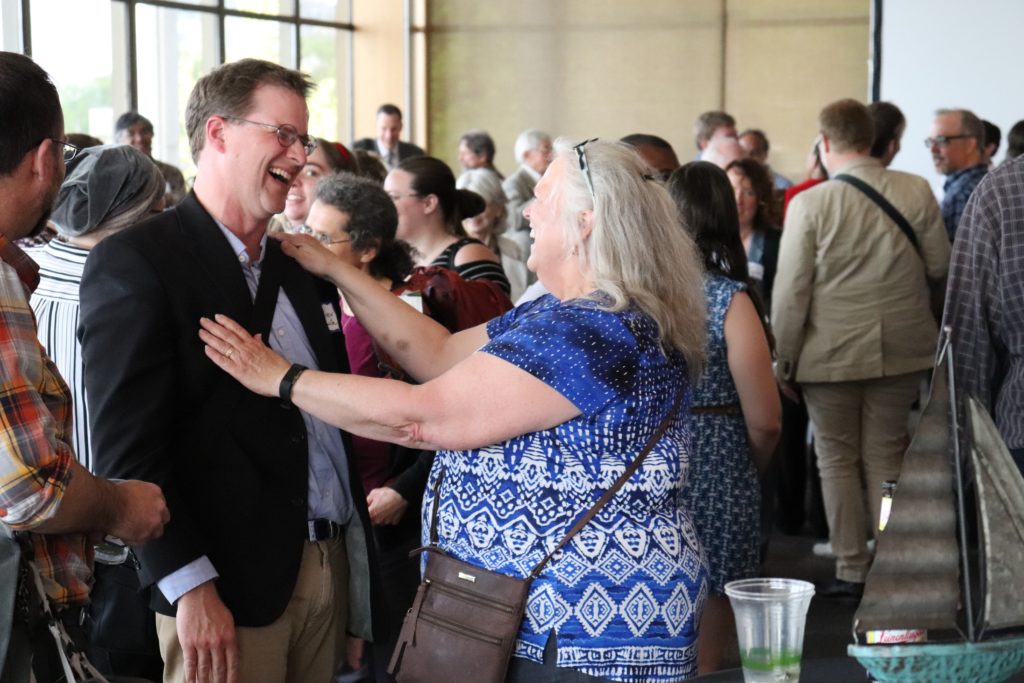
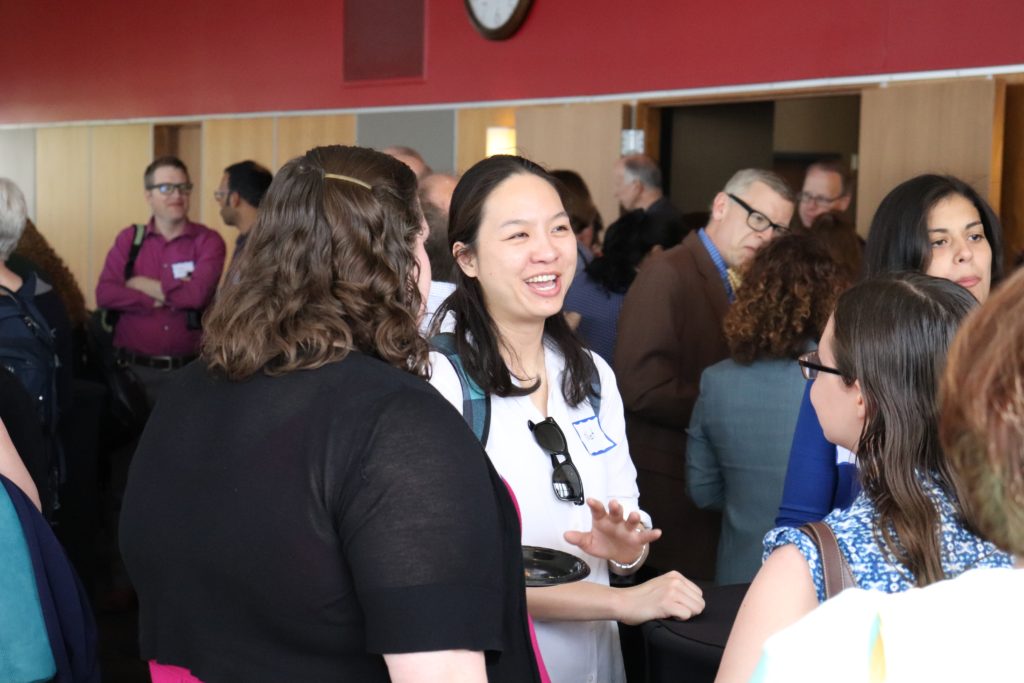
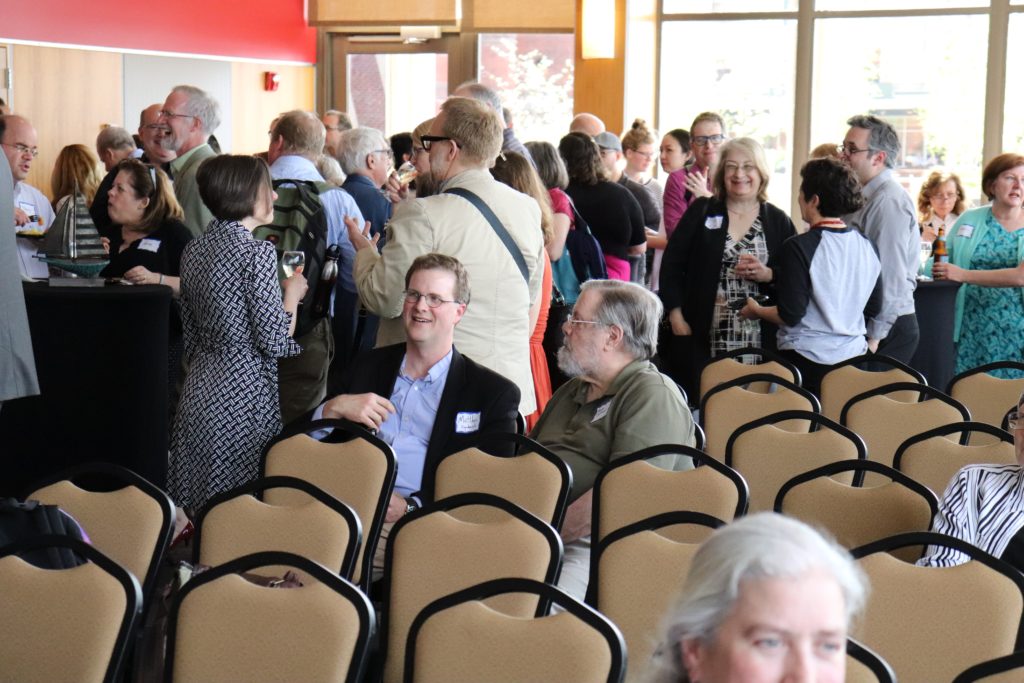
My Future
Although I will no longer be working with these programs that I love at the University of Wisconsin-Madison, the Writing Center’s programs and WAC have fabulous, talented, visionary, and dedicated leadership, from colleagues I admire more than I could ever say; a smart, dynamic, dedicated staff of tutors; great partners across campus and beyond; strong, enduring support from talented, visionary department, College, and University colleagues and leaders; and very bright futures. I am not retiring from my professional work–I am already busy finishing some research projects and publications and starting exciting new ones. I am also busy consulting, teaching, giving keynote addresses and invited lectures, and evaluating programs at universities around the US and in Kazakhstan (my 8th trip there), in Poland, and in China (in October 2019 I will be giving a keynote address at a conference and lecturing at six different universities in China). I am eager to keep learning from wonderful writing center and WAC friends all over the world and to share anything that I happen to know.
Finally, I would like to share a special gift. Professor of English Emerita Deborah Brandt–my wonderful long-time colleague and friend at UW-Madison–honored my retirement by writing a poem about my career, which she kindly gave permission to share.
Brad’s Boat, by Deb Brandt, May 2019
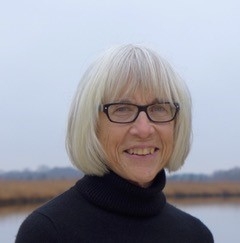
We all worked together in a cove on a lake.
Tucked in.
It was a place for idle ideas.
Quiet.
Except for the guy who was building a boat.
Hammering.
Hammering.
Into the night, and up the next day.
He would not stop,
This Noah on a mission.
Brad, Brad,
The boat is too big.
No, no, he would answer, it needs another side.
Hammering.
Hammering.
This Noah with a vision.
One time he stopped hammering and watched with me
As the lake was cracking open from the winter freeze.
We could hear it groaning.
By tomorrow, he said, we will have the water again.
Then, back to hammering.
For years he was at it.
Brad, Brad,
The boat is too big.
No, no, it needs this angle here.
The rest of us kept dreaming over the lake,
Wondering when he would stop.
No, no, it needs another deck.
Hammering.
Hammering.
When did we realize he had built the boat under us?
Brad, Brad,
The boat is too big.
We can’t get it out of this cove.
Six stories above Mendota,
We can’t get it out of the door.
You will have to leave without it.
Too big and too perfect to be turned around.
Photo Credits
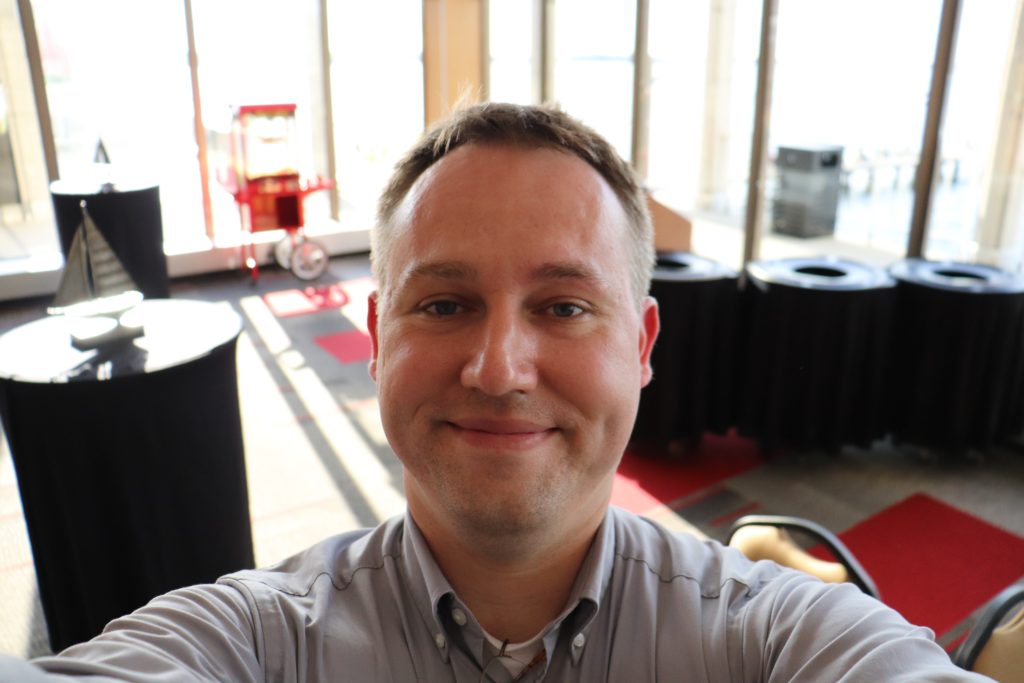
Featured photo credit: Bryce Richter, University Communications.
A huge thanks to Aaron Vieth for taking and curating all of the photos from my retirement celebration!


Thank you, Brad. I have returned to China. The one-year academic visit to UW-Madison means so much to me. You, Nancy, Emily, Karen, Mia, Calley, Mike and many others in your Writing Center have impressed me a lot by your effort to support a strong culture of writing across the University. You have raised me up so much with all your inspiring trainings, workshops, and discussions that I have cried our, “I have a dream.” I hope to set up a Writing Center as efficient and powerful as yours in UW-Madison; I hope to localize the WAC (Writing Across the Curriculum) to raise up the Chinese education since you have helped me touch its magic power. Thank you for being a leader, mentor, trainer, co-operator and an “extremely respected” writing magician. (I have heard this from one of the staff. Yes, you deserve that. ) I mean it. Best wishes to you, to UW-Madison Writing Center, to me and to my future Center.
Huifang Du (Sophie), an academic visitor to UW-Madison from 2018-19 academic year
Foreign Languages College, Zhejiang Normal University, China
September 28, 2019
You’ve left some large shoes to fill, Brad, and I’m so honored to have been able to work with you! As someone holding a leadership position during the first semester post-Brad-Hughes, I never fully appreciated just how much you did for us all. You’ve defined what a “writing center” should be, not just for UW-Madison but beyond (as Online Coordinator, I get so many emails from other writing centers and other programs on campus asking for advice).
Know that your voice, your values, and your positivity still (and will forevermore) breathe life into our day-to-day conversations about quality feedback, strategies for both in-person tutoring and asynchronous instruction. UW-Madison Writing Center = Brad Hughes!!!
Deb Brandt gets it right in her poem: you built the boat under all of us, Brad. I know I wouldn’t be where I am today without the Writing Center that you built. And I’m sure many other former UW-Madison Writing Center instructors could say the same, whether they now work inside or outside of universities.
And that’s because of the insight that you rightly underscore here: “A research university is a writing university.” Which is to say that rigorous thinking about research happens through writing — and, even before that writing is shared publicly, through talking about writing. Teaching in the Writing Center taught me that the university’s most essential work — including its production of new knowledge — takes place through conversation. In the Writing Center, I learned how to talk with anyone, from a literary critic to a demographer to a climate scientist, about their work by simply listening and asking questions. Such conversations help writers figure out what they’re saying and how to say it best — and give me a chance to learn something new into the bargain. (Not a bad way to spend an hour. Or a career.)
Brad, you’ve spent 35 years fostering and proliferating contexts in which these transformative conversations happen, among peers or between teachers and students, at UW and around the world. That work couldn’t be more essential to the careful, rigorous thought and civil, evidence-based discourse that universities aim to encourage, and that we need so desperately now. Thank you, Brad.
Dear Brad,
I feel so lucky to have met you, worked with you, and profited from your never ending enthusiasm, your vast knowledge, and your generous kindness. So many people have gained something by getting in touch with you, not only writers, but also the many different people who are in some way involved in the Writing Center cosmos – in the States and at many places abroad. I don’t know anyone else who does what you do: Helping others build new Writing Centers or improving what they already have, To me, you are the best Ambassador our community could hope for. You have played an important role in my personal work and I will forever cherish what you have helped to create. And the best thing is that with you things are never “just work”, you share and enjoy so many different things with other people that I’ve come to believe that you must have so magical recipe for not needing any sleep and having almost endless energy. It’s infectious in the best possible way. You know that I admire the huge map at Madison’s Writing Centers on which you keep track of the people who have worked at the Writing Center – it’s such a telling sign of the care that you show towards others! You will continue to make a difference in the world and that is the best thing I could imagine. I am looking forward to it and I am also looking forward to our next meeting. And maybe, in the near future, we will go and see the Berlin Philharmonics together, that would be the most awesome thing, don’t you think?
Warmest regards from Frankfurt/Germany,
Stephanie
Brad,
This event was such a highlight of my spring semester. But with it, I also soon lost my weekly meetings with a boss, mentor, and friend. You helped me (and so many) become better teachers, writers, and thinkers. I came to UW Madison, in part, because of the strength of its WC and WAC programs. I’m honored to be a part of them. Thank you for building the boat, Brad! We’re all better for it.
Mike
wow, Deb’s poem is exactly right, Brad. You built such an amazing boat. You were such a mentor and role model for me–it’s really left a lasting impact and informs how I approach everything I do in working with faculty, graduate students, and undergraduate students. I’m so in awe–and thankful that you had such an amazing celebration. Lots of love, Stephanie
This reminds me of all the positive energy and the overwhelmed feeling I received just to witness your impact on people’s lives on your “Celebration of writing.” I feel so lucky to meet you and learn from you, even only for a short time. You’ve inspired me (and lots of us, I believe) to start and continue a journey at the writing center. Thank you soooooo much! You’re a legend!!
The art of thankfulness–this is Brad Hughes. A legacy of authentic consideration for others–also Brad Hughes. Gravitas, humility, kindness, all of these are Brad Hughes. It is a common occurrence in my work at my university for me to think of something Brad taught us, and to regularly apply it. It is a common moment when I recall the importance, when we get down to it, of human interactions. At the end of any number of days, I can say that it–the work of writing centers, departments, committees, people–revolves around the extent to which we are willing to be good humans to other humans, and the result is that we see the good in them. Thanks Brad for all of it.
Christopher Syrnyk
Assoc. Prof. of Communication
Director of the Honors Program
Oregon Tech
Brad,
True to form, in this post as in life, you’ve been generous to the end, sharing so much from your retirement celebration (photos, audiofiles, links to resources, words of wisdom, etc.)–great for those of us who couldn’t be there.
Generations will be grateful you didn’t end up in an air traffic control tower!
Brad, thank you so much for posting this! I’m sorry I couldn’t be there in-person, but I am so glad to hear your words here. Deb is exactly right: you have tirelessly built something that has lifted up so many of us in writing centers, WAC, writing studies, and so far beyond across curriculum and universities nationally and internationally. Even reading this post, I am re-invigorated and reminded of how the research university runs on writing, how writing is a way of supporting thinking and building complex ideas, how it is a way of reaching people. And how we are in the business of supporting that really important work. I am so grateful I’ve been able to learn from the very best, Brad.
I also hope we get a chance to hear more about your theory of the links between quantum mechanics and teaching writing! Cheers, Brad! Congratulations, and looking so forward to hearing about your in-progress and future work.
Elisabeth Miller
Assistant Professor of English & Incoming Co-Director of Writing & Speaking Across the Curriculum
University of Nevada, Reno
Brad,
I have so many things to thank you for I can’t list them all here. For now, in this moment, thank you for this beautiful post. True to form, it has handy links (what a treasure). True to form, you continue to advocate for a culture of writing (The university runs on writing–yes it does!). And true to form, you are expansive in your vision.
Brad, I came of age in this profession sitting across from you in your office, with that small wooden clock on your desk ticking away the minutes of our meetings. You always seemed to have the words for so much I needed to say and do. What luck to learn from such a teacher.
Thank you, Brad, for all you have taught me, for your generosity, for your wisdom, and, most of all, for your friendship. I’m a better teacher because you, a better scholar, and, maybe, a better person.
All that I owe you is beyond evaluation,
John
John Duffy
Professor of English
O’Malley Director of the University Writing Program
University of Notre Dame
Deb Brandt’s poem left me verklempt, Brad! I loved getting to read your remarks here. They are so you and so true. Thank you forever for mentoring so many of us into careers that are perennially challenging and rewarding. Grateful beyond words. I will pay it forward as best I can.
Rachel Azima
Writing Center Director
University of Nebraska-Lincoln
Brad,
I’m so happy to see your speech on the Internet! I’ve enjoyed working in the Writing Center with you and other colleagues! The Writing Center at UW-Madison has greatly influenced me! Here at UMKC I connected with a new associate professor in economics and we started an informal writing group for faculty! We are seven people strong, all of us in the College of Arts and Science. And now I’m collaborating with another Composition and Rhetoric scholar to pilot a separate more formal faculty writing group in January! Thank you for being a wonderful example of creating cultures of writing across campus! Hope to see you very soon as I’m sure you have not stopped being an advocate for writing centers and writing!
Antonio Byrd
Assistant Professor of English
English Literature and Language
University of Missouri-Kansas City
Brad, thank you so much for sharing this with us – I wish that I could have been there to celebrate! – and thank you for being such a tireless and supportive mentor and teacher. I continue to be inspired by your example and will always be incredibly grateful for everything you’ve done to encourage and challenge me. Deb’s poem is so beautiful and moving – and so perfect. Congratulations, Brad – I’m looking forward to hearing more about your new projects! Sending you love from D. C.
Taryn Okuma
Associate Professor of Practice in English
Director, Writing Center Undergraduate Tutor Program
Associate Director, Writing & Rhetoric Program
The Catholic University of America
Hello Brad, Thank you for sharing these reflections. As I adjust to stepping out of a leadership role at our Writing Center, I am constantly reflecting on what the transition must be like for someone who spent 35 years invested in this university. You are a true testament to tenacity, dedication, what what we can accomplish by loving what we do.
Mia Alafaireet
PhD Candidate
UW-Madison English Department
[…] Hughes says that “a research university is a writing university.” That is, rigorous thinking about research happens through writing—and, even before that writing […]
Well, let’s start by sharing a smile with Deb: BRAD, BRAD, THE BOAT IS TOO BIG! 🙂
It is, indeed, sooo big. But thank goodness it is. How else could it have carried so many of us so far and yet kept us so close. <3
I just returned from IWCA where I missed seeing you in the halls and sharing a laugh and maybe a meal. That really started to make it real for me–knowing that I might not run into you at conferences quite so often. But we have much more to talk about–writing and families and planes and shows and much more–so I won't let you off the hook, off the line, quite yet.
My heartfelt thanks for all that you have built and all that you have given and all the people you have knit together into these communities we value so deeply. Much love to you my friend!
Rebecca
As many before me have said: Deb’s poem gets it exactly right. And yet, perhaps it still doesn’t quite go far enough. I am in my office in Hattiesburg, Mississippi, where I meet students and workshop their writing–just like Brad taught me. The boat is also here. The boat is in Nevada and Georgia and New Hampshire and Missouri and Washington and Kazakhstan and China… The boat is inside all of use who have had the privilege of knowing–and learning from–Brad. For to know Brad is to learn and become ever better. I am so grateful for the training I got at Wisconsin from Brad and so many others. And in a particularly selfish way, though I fully trust Emily and Nancy and Jen and Aaron and everyone else still steering the UW-Madison Writing Center, I am grateful not to have had to learn how to be in that Writing Center without Brad.
Congratulations, Brad! I so wish I could have been there to celebrate with you all.
I loved the photos and seeing so many familiar places and friendly faces. When I got done reading all of the different programs, departments, faculty, universities, and international locations you’ve collaborated with, I felt somewhat overwhelmed. How is it possible?! But after I saw the pictures, I think I understood better. There was that one from the 1980s with those stackable in-boxes for sorting different kinds of things you’re working on – it rose high and out of the picture! That seems about right.
I’m so grateful for what you built and for how you mentored me. It has forever shaped the kind of teacher I am. I wish you many more adventures and many more strolls across campus greens in sunny Septembers at the start of new academic years.
Zach Marshall
Assistant Professor of English
Greenville University, Illinois
I imagine there aren’t many Americans who can get people from Kazakhstan and China to “stop by” their retirement celebration. But it’s not surprising that you can. I feel fortunate to have been among the many people who have benefited from your knowledge and your generous mentoring. It’s difficult to overstate how much I’ve learned from working with you on this amazing and ever-expanding boat. Thank you, Brad!
Rick Ness
PhD Candidate
University of Wisconsin-Madison
Deb’s poem: amazing. I feel so incredibly privileged to have been at UW in the late 1990s while Brad was building his big, beautiful boat. I was not able to attend Brad’s retirement celebration but I did write him a letter, much too long to post here. I can, however, share the conclusion (below). Thank you, Brad — for everything.
It’s difficult to imagine the Writing Center at the University of Wisconsin-Madison without Brad Hughes. I don’t believe I can think of another person who is more strongly associated with a space than Brad is with the UW’s Writing Center. He has built something magnificent, and I am confident it will continue to thrive and grow in large part because Brad has mentored so many of the people who continue to work there. Brad’s presence will be felt at the University of Wisconsin, just as it will be felt at countless writing centers around the country that are directed by those who have had the great, good privilege of being trained and mentored by Bradley T. Hughes, a great, good man.
[…] writing classes or writing centers. In the farewell blog post by former director Brad Hughes “A Valediction” he […]
[…] Center’s public outreach branch, a tutoring service. Co-founded by former Writing Center Director Brad Hughes in 1999 and offering writing tutoring out of Madison’s Goodman South Library branch, it has grown […]
Hi Brad,
I was thinking today as I have often done in my career, about the advice you gave us graduate student TA fellows in the Writing Across the Curriculum program. So I decided to Google you and UW and see how things were at the Writing Center and found this and that you had retired last year! The advice you gave and has stuck with me since is; ‘always make your compliments as specific as your criticism’. This is a universal piece of wisdom, not just for providing feedback on a student’s essay, but for everything. I use it all the time with my staff when talking about leadership philosophy, or when providing feedback to staff on their performance or work. It truly has been a guiding principle for me. And I still remember it so vividly when you said it, in our training, when we were going over how to provide feedback to a student on a piece of writing- looking at the essay on a screen from an overhead projector (yes, it was the late 90’s).
We kept in touch briefly after I left Madison, and left academia but your words, kindness and genuine servant leadership approach have never left me… So sorry I missed you last year in Pittsburgh and just learning now that you have retired. I hope you have many more years sharing your wisdom with the world!
All the best, Cris
Cristina Ruggiero, Ph.D (UW-PoliSci)
Director of Behavioral Health Innovation and Learning